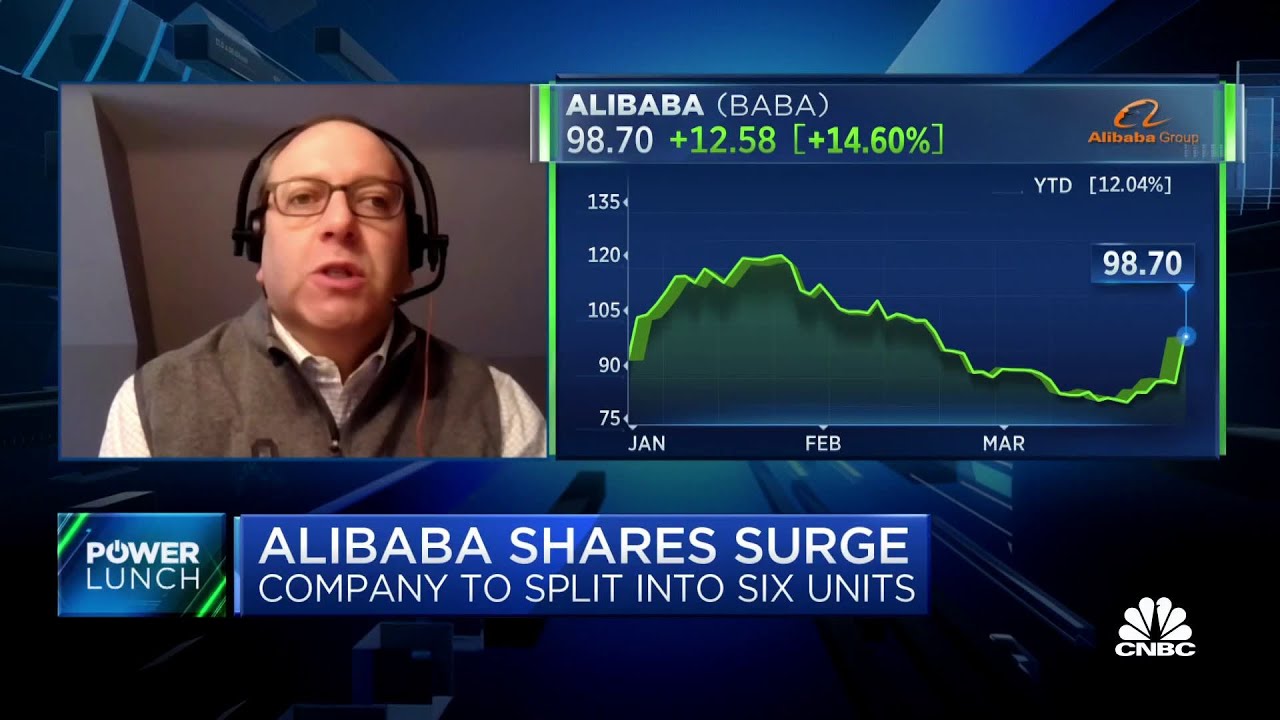Alibaba's Split Reveals China's Shifting Approach To Big Tech, Says Third Bridge's Scott Kessler
Unleash Your Creative Genius with MuseMind: Your AI-Powered Content Creation Copilot. Try now! 🚀
Alibaba, the Chinese e-commerce giant, recently announced its decision to reorganize its business into six different units. This move aims to unlock value and provide independence to each unit. The news has sparked excitement, with Alibaba's shares surging nearly 15%. But is this strategic break-up justified? Let's dive in and explore.
The Next Generation Digital Conglomerate
Alibaba has long been a digital conglomerate, operating in various sectors such as logistics, international e-commerce, and digital media. However, many conglomerates eventually realize that separating out different businesses can lead to the actualization of more value. With this reorganization, Alibaba aims to provide investors with a better understanding of each business unit and potentially increase value.
Streamlining or Cost Cuts?
Some skeptics speculate that the purpose of splitting the business into six units is to make layoffs easier, streamline operations, and make cost cuts. While this may not be the primary rationale behind Alibaba's decision, it's an interesting perspective to consider. In an era of efficiency, with Wall Street's excitement about cost-cutting measures, such motives cannot be ruled out entirely.
However, Alibaba's primary goal seems to be unlocking value by enabling the investing public to gain a better understanding of each business unit's potential. It's worth noting that there haven't been significant synergies across all of Alibaba's businesses. For example, the connection between small business e-commerce in China and Alibaba Pictures is not apparent. Therefore, separating the units can provide clarity and potentially increase their individual value.
The Influence of the Chinese Government
China's big tech companies, including Alibaba, have faced challenges in recent years as the government has sought to rein in their power. However, there seems to have been a thawing of this cold war between big tech and the government in recent times. Alibaba's decision to reorganize its business units could be seen as a good indication of the government's endorsement, as it's unlikely that Alibaba would proceed without at least the tacit approval of government interests.
This move highlights the government's implicit support for its own corporate champions in the face of challenges from the exportation of technology, particularly semiconductor technology, from the U.S. In a time where the U.S. and China are engaged in an arms race, amassing more power and direction might be a strategy the Chinese government considers.
The Origins of the Plan
It's an interesting question to ponder: who is driving this strategic break-up? Did the plan originate organically within Alibaba, or did external factors influence it? There are several possibilities to consider.
Ultimately, it's likely that the plan originated within the company itself. Alibaba has experienced significant fluctuations in its market value, dropping from $850 billion to under $200 billion during the height of the COVID pandemic in 2020. Given these circumstances, it's reasonable to assume that Alibaba's executives and board members took the initiative to explore new strategies for unlocking value.
While input from investment bankers or third parties may have been considered, Alibaba's decision to reorganize its business units is a reflection of its determination to regain market value and ensure long-term success.
In Conclusion
Alibaba's decision to reorganize its business into six different units has generated a buzz of excitement, leading to a surge in its stock value. While some speculate about hidden motives such as layoffs and cost cuts, Alibaba's primary goal appears to be unlocking value and providing investors with a clearer understanding of each business unit's potential.
The influence of the Chinese government cannot be discounted, as this move aligns with their interest in supporting their corporate champions and overcoming challenges from the U.S. In the ever-evolving landscape of global commerce and technology, strategic changes like this one are vital to staying competitive and driving growth.
As we await the implementation of Alibaba's reorganization plan, it will be fascinating to observe how these separate business units thrive and contribute to the overall success of the company. Whether this strategic break-up proves transformative or merely a stepping stone in Alibaba's journey, only time will tell.

Related Recaps
- LIVE ON 🔴 SQUAD DA RESENHA - FT. CEROL BOCA HUDSON 💜 3• DIA DE LOJINHA 💜
- Get Youthful and Firm Skin with Agent Nateur Holi Lift Serum
- 'Clutch Player' De'Aaron Fox tries getting past fractured finger before Kings Game 5
- Wheel on The Bus | Nursery Rhymes & Kids Songs | BOOBOOBUDDIES Tv
- PESTA ULANG TAHUN BETRAND KE-18‼️ UDAH RAME, BANYAK SURPRISE‼️| THE ONSU FAMILY